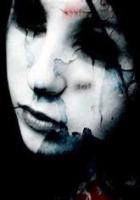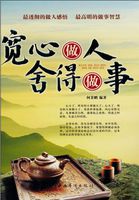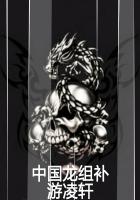Like the mountain lion, the man was a killer. But, unlike the lion, his vague description and the narrative of his deeds was in all the newspapers, and mankind was a vast deal more interested in him than in the lion. The lion had slain calves in upland pastures. But the man, for purposes of robbery, had slain an entire family--the postmaster, his wife, and their three children, in the upstairs over the post office in the mountain village of Chisholm.
For two weeks the man had eluded and exceeded pursuit. His last crossing had been from the mountains of the Russian River, across wide-farmed Santa Rosa Valley, to Sonoma Mountain. For two days he had laired and rested, sleeping much, in the wildest and most inaccessible precincts of the Kennan Ranch. With him he had carried coffee stolen from the last house he had raided. One of Harley Kennan's angora goats had furnished him with meat. Four times he had slept the clock around from exhaustion, rousing on occasion, like any animal, to eat voraciously of the goat-meat, to drink large quantities of the coffee hot or cold, and to sink down into heavy but nightmare-ridden sleep.
And in the meantime civilization, with its efficient organization and intricate inventions, including electricity, had closed in on him. Electricity had surrounded him. The spoken word had located him in the wild canyons of Sonoma Mountain and fringed the mountain with posses of peace-officers and detachments of armed farmers. More terrible to them than any mountain lion was a man-killing man astray in their landscape. The telephone on the Kennan Ranch, and the telephones on all other ranches abutting on Sonoma Mountain, had rung often and transmitted purposeful conversations and arrangements.
So it happened, when the posses had begun to penetrate the mountain, and when the man was compelled to make a daylight dash down into the Valley of the Moon to cross over to the mountain fastnesses that lay between it and Napa Valley, that Harley Kennan rode out on the hot-blooded colt he was training. He was not in pursuit of the man who had slain the postmaster of Chisholm and his family. The mountain was alive with man-hunters, as he well knew, for a score had bedded and eaten at the ranch house the night before. So the meeting of Harley Kennan with the man was unplanned and eventful.
It was not the first meeting with men the man had had that day.
During the preceding night he had noted the campfires of several posses. At dawn, attempting to break forth down the south-western slopes of the mountain toward Petaluma, he had encountered not less than five separate detachments of dairy-ranchers all armed with Winchesters and shotguns. Breaking back to cover, the chase hot on his heels, he had run full tilt into a party of village youths from Glen Ellen and Caliente. Their squirrel and deer rifles had missed him, but his back had been peppered with birdshot in a score of places, the leaden pellets penetrating maddeningly in a score of places just under the skin.
In the rush of his retreat down the canyon slope, he had plunged into a bunch of shorthorn steers, who, far more startled than he, had rolled him on the forest floor, trampled over him in their panic, and smashed his rifle under their hoofs. Weaponless, desperate, stinging and aching from his superficial wounds and bruises, he had circled the forest slopes along deer-paths, crossed two canyons, and begun to descend the horse-trail he found in the third canyon.
It was on this trail, going down, that he met the reporter coming up. The reporter was--well, just a reporter, from the city, knowing only city ways, who had never before engaged in a man-hunt. The livery horse he had rented down in the valley was a broken-kneed, jaded, and spiritless creature, that stood calmly while its rider was dragged from its back by the wild-looking and violently impetuous man who sprang out around a sharp turn of the trail. The reporter struck at his assailant once with his riding-whip. Then he received a beating, such as he had often written up about sailor-rows and saloon-frequenters in his cub-reporter days, but which for the first time it was his lot to experience.
To the man's disgust he found the reporter unarmed save for a pencil and a wad of copy paper. Out of his disappointment in not securing a weapon, he beat the reporter up some more, left him wailing among the ferns, and, astride the reporter's horse, urging it on with the reporter's whip, continued down the trail.
Jerry, ever keenest on the hunting, had ranged farther afield than Michael as the pair of them accompanied Harley Kennan on his early morning ride. Even so, Michael, at the heels of his master's horse, did not see nor understand the beginning of the catastrophe. For that matter, neither did Harley. Where a steep, eight-foot bank came down to the edge of the road along which he was riding, Harley and the hot-blood colt were startled by an eruption through the screen of manzanita bushes above. Looking up, he saw a reluctant horse and a forceful rider plunging in mid-air down upon him. In that flashing glimpse, even as he reined and spurred to make his own horse leap sidewise out from under, Harley Kennan observed the scratched skin and torn clothing, the wild-burning eyes, and the haggardness under the scraggly growth of beard, of the man-hunted man.
The livery horse was justifiably reluctant to make that leap out and down the bank. Too painfully aware of the penalty its broken knees and rheumatic joints must pay, it dug its hoofs into the steep slope of moss and only sprang out and clear in the air in order to avoid a fall. Even so, its shoulder impacted against the shoulder of the whirling colt below it, overthrowing the latter.
Harley Kennan's leg, caught under against the earth, snapped, and the colt, twisted and twisting as it struck the ground, snapped its backbone.















